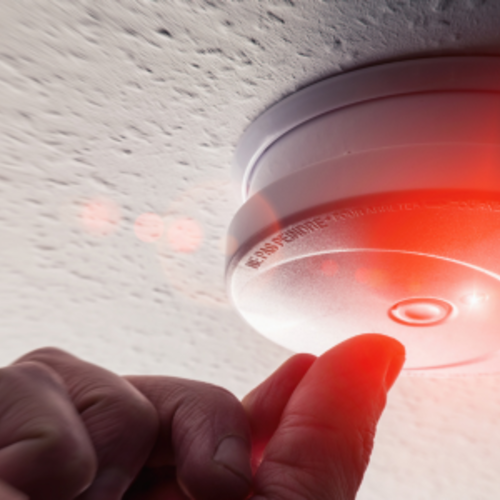When it comes to home maintenance, two paths lie before you.
You can either roll up your sleeves and tackle the task yourself, or you can hire a professional to do it for you.
This decision isn’t always straightforward. It’s a balance between cost, time, skill, and the complexity of the task at hand.
In this guide, we’ll delve into the world of DIY vs. professional maintenance. We’ll explore the pros and cons of each approach, helping you make an informed decision.
Whether you’re a seasoned DIY enthusiast or a homeowner weighing the cost-effectiveness of hiring professionals, this guide is for you.
Join us as we navigate the intricacies of home maintenance, and help you make the right choice for your home.
Understanding DIY Maintenance
DIY, or Do-It-Yourself, is a popular approach to home maintenance. It involves homeowners taking on tasks themselves, rather than hiring professionals.
DIY maintenance can range from simple tasks like painting walls, to more complex projects like installing a new kitchen sink.
The appeal of DIY lies in its potential cost savings. By doing the work yourself, you can save on labor costs associated with hiring professionals.
However, DIY maintenance requires time, effort, and a certain level of skill. It’s important to understand what you’re getting into before you start a DIY project.
Understanding Professional Maintenance
Professional maintenance, on the other hand, involves hiring trained experts to handle home maintenance tasks. These professionals have the necessary skills, tools, and experience to perform the job efficiently.
Hiring professionals can ensure high-quality work. They know the best practices and can deliver results that last longer and look better.
However, professional services come at a cost. You pay not only for the materials but also for the labor and expertise of the professionals.
Despite the cost, many homeowners opt for professional maintenance for complex tasks, peace of mind, and guaranteed results.
The Importance of Regular Home Maintenance
Regular home maintenance is crucial for every homeowner. It helps keep your home in good condition and prevents minor issues from turning into major problems.
Maintenance tasks can range from simple cleaning to more complex repairs. Regular upkeep can extend the lifespan of your home’s components and systems.
Ignoring maintenance can lead to costly repairs in the future. It’s a proactive approach that saves money in the long run.
Moreover, a well-maintained home provides a safe and comfortable living environment. It’s an investment in your home’s longevity and value.
Cost Benefits and Investments in DIY Maintenance
DIY maintenance can be a cost-effective choice. It eliminates the labor costs associated with hiring professionals.
However, it’s important to consider the investment in tools and materials. Some tasks may require specialized equipment that can be expensive.
Time is another factor to consider. DIY projects can be time-consuming, especially for beginners.
Here are some potential cost benefits of DIY maintenance:
- No labor costs
- Potential to reuse tools and materials for future projects
- Learning new skills that can save money in the long run
In the end, the cost benefits of DIY maintenance depend on the complexity of the task and your level of expertise.
Expertise, Tools, and Safety in DIY Projects
DIY maintenance requires a certain level of expertise. You need to understand the task at hand and how to complete it safely.
Having the right tools is crucial. Some tasks may require specialized tools, which can be an investment.
Safety is another important aspect. DIY projects can pose risks if not done correctly.
In conclusion, DIY maintenance requires expertise, the right tools, and a focus on safety. It’s important to assess these factors before starting a DIY project.
The Convenience and Quality of Professional Work
Professional maintenance offers convenience. You don’t have to spend time learning, planning, and executing the task.
Professionals have the right tools and expertise. They can complete tasks more efficiently and effectively.
The quality of work is often higher with professionals. They have the training and experience to do the job right.
Professional work often comes with warranties. This provides peace of mind in case of future issues.
In summary, professional maintenance offers convenience, quality work, and warranties. These factors can make it a worthwhile investment for many homeowners.
Long-term Value: DIY vs. Professional Maintenance
DIY maintenance can save money upfront. But consider the long-term value.
Professional maintenance can prevent costly future repairs. It can also increase your home’s value.
On the other hand, DIY projects can lead to mistakes. These can result in more expensive repairs down the line.
In conclusion, weigh the immediate savings of DIY against the potential long-term value of professional maintenance.
Specific Tasks: What to DIY and What to Leave to the Pros
Some tasks are perfect for DIY. These include painting, minor plumbing fixes, and simple electrical work.
However, some tasks are best left to professionals. These include HVAC repairs, roof work, and complex electrical tasks.
Here’s a simple guide:
- DIY: Painting, minor plumbing, simple electrical work
- Professional: HVAC repairs, roof work, complex electrical tasks
Remember, it’s about balancing cost, time, and safety. Always consider these factors when deciding between DIY and professional maintenance.
The Role of Technology and Community in DIY Maintenance
Technology has made DIY maintenance easier. Online tutorials and forums provide a wealth of knowledge for DIY enthusiasts.
Apps can also aid in DIY maintenance. They can provide step-by-step guides and even virtual assistance.
The DIY community is another valuable resource. Sharing experiences and advice can help you avoid common pitfalls.
In conclusion, technology and community are invaluable tools for DIY maintenance. They can make the process easier and more enjoyable.
Legal and Insurance Considerations
DIY maintenance can have legal implications. It’s crucial to understand local building codes and regulations.
Insurance policies may also be affected by DIY work. Some DIY mistakes can lead to voided home insurance policies.
Professional maintenance often comes with warranties and service contracts. These can provide additional peace of mind.
In summary, understanding the legal and insurance considerations is vital when deciding between DIY and professional maintenance.
Making the Right Choice for Your Home
Choosing between DIY and professional maintenance depends on several factors. These include the complexity of the task, your skill level, and the time you can dedicate.
Consider the potential return on investment. This includes both financial aspects and the satisfaction derived from completing a project.
In the end, the right choice is the one that best suits your needs and circumstances.
Conclusion: Balancing DIY and Professional Maintenance
Balancing DIY and professional maintenance is key. It’s about understanding your capabilities and knowing when to seek help.
Remember, the goal is to maintain your home in the best possible condition. Whether you do it yourself or hire a professional, the choice is yours.
In the end, it’s about making the right choice for your home and your peace of mind.




